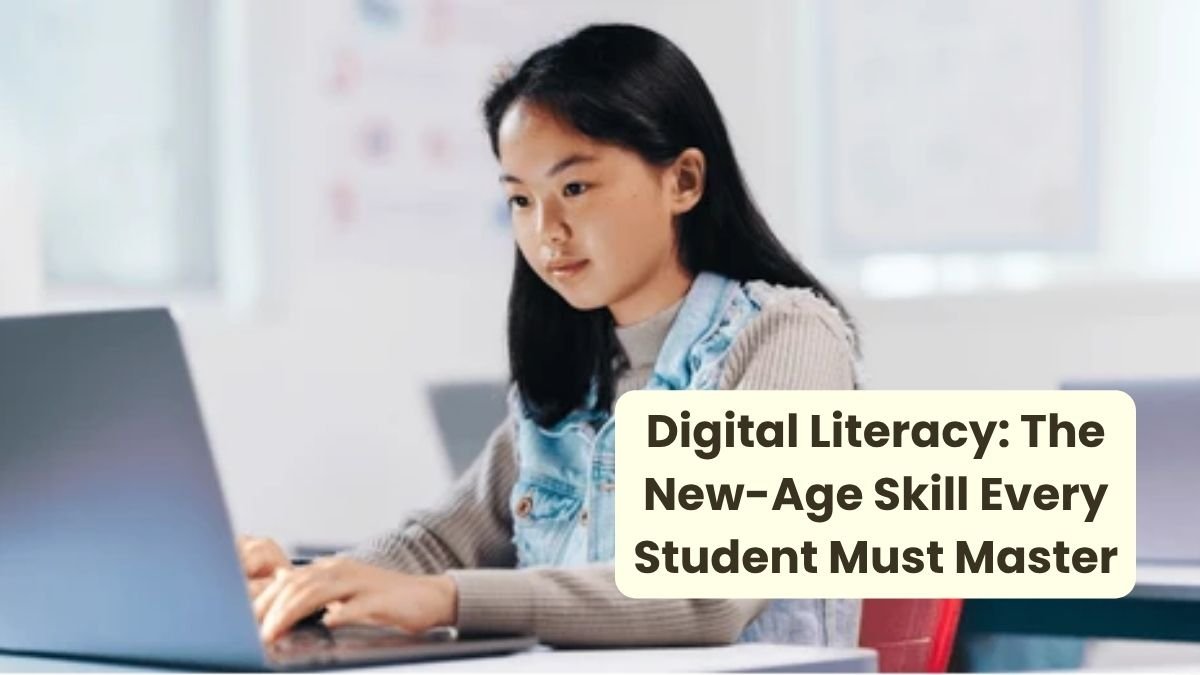Digital literacy has ceased being a choice, especially in the current dynamic world. Reading and writing books is the basics of education, so knowing how to use computers, the Internet, and other digital resources is of sum-absolute importance to students nowadays. The given article revolves around the significance of digital literacy, its advantages, and the contribution to the education of students and their future.
What is digital literacy?
Digital literacy does not mean just operating a computer or mobile. It has a broader meaning
- searching for information online,
- verifying its authenticity,
- using various digital platforms effectively,
- understanding cyber security, and
- knowledgeable in online interaction.
That is to say, digital literacy entails that a student is able to effectively use the Internet and technology in a proper, safe and creative manner.
What role does digital literacy play in students?
- Easy access to education Through digital means, students today can get information on any subject. YouTube videos, online books, webinars and e-learning platforms like Coursera, Byju’s or Khan Academy have completely changed the way of learning.
- Makes one independent and self-reliant Students do not need to rely on any other person to provide information when they gain skills on how to use the digital tools. They are able to conduct research by themselves, set up assignments and study at their convenience.
- Career preparation Future jobs and businesses will be based on digital knowledge. Whether it is data analytics, graphic designing, digital marketing or coding – digital literacy will be needed everywhere.
- Understanding of cyber security The digital world has as many facilities as it has dangers. If students are literate, they will be able to protect themselves from fake news, online fraud and cyberbullying.
Challenge of digital literacy in rural areas
Even today, millions of students in rural India are deprived of digital literacy. The reason for this is
- Slow or unavailable internet service,
- Lack of smartphones or laptops,
- Lack of trained teachers, and
- Over reliance on traditional education system.
But in recent years, the government and many non-governmental organizations have started working in this direction. Efforts like “Digital India” campaign, teacher-in-charge training, and digital panchayat program are making digital skills accessible to rural students.
How can digital literacy be taught?
- Compulsory digital education in schools The basics of computers and internet should be taught from class 6th.
Encourage students to use digital devices in project work. - Mobile-friendly learning Most rural students have smartphones. In such a situation, studies can be made interesting through mobile apps (like Diksha App, Umang).
- E-library and community training center By creating e-library and digital centers in villages, students can be provided with internet facilities.
- Involve parents as well When parents are familiar with digital technology, they will be able to encourage their children. For this, group workshops can be conducted.
Major benefits of digital literacy
| Benefit | Description |
|---|---|
| Quick Access to Information | Any topic can be quickly searched and learned via Google or YouTube. |
| Communication Skills | Stay connected with the world through email, video calls, or social media. |
| Employment Opportunities | Career prospects in freelancing, remote jobs, and digital services. |
| Social Change | Awareness, information on government schemes, and connection with e-governance. |
Which tools and skills should be known?
Students should have knowledge of these basic digital skills:
- Basic computer skills: Word, Excel, PowerPoint
- Effective use of Google search
- Creating and sending emails
- Online safety and password management
- Positive use of social media
- Filling online forms and using government sites
Future of digital literacy
The era of new technologies like AI (Artificial Intelligence), machine learning, blockchain and virtual reality has begun. In the coming 10 years, only those students who are digitally competent will be able to move ahead. Schools and parents should equip children not only with bookish knowledge but also with digital skills.
Conclusion
Digital literacy is the most important skill of today’s time, especially for students. It not only makes them successful in today’s education system, but also prepares them for tomorrow’s future. With digital knowledge, students become self-reliant, move forward towards employment and also bring positive change in their society.
